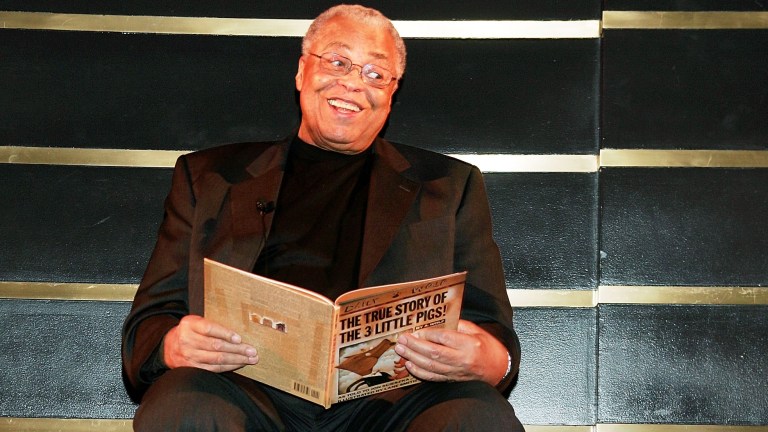James Earl Jones’ Reading Rainbow Episode Perfectly Encapsulates His Monumental Talent
James Earl Jones was a mountain of a talent who always treated his craft with the utmost respect, from Broadway to Reading Rainbow.

Like millions of other people around the world, the announcement Monday of James Earl Jones’ passing hit me particularly hard. A mountain of a man and a talent, Jones carved out a stunning career on stage and screen. Yet for many children of the ‘80s, ‘90s, and later, his very voice symbolized something profound, whether it was used for operatic villainy in the Star Wars films or nigh divinity in The Lion King.
It’s all the more impressive, too, when you know Jones developed that rich and ultimately generation-shaping baritone out of serious hardship. As a boy, Jones grew up with a severe speech impediment and stutter. Throughout most of his childhood, he was too embarrassed to speak, even telling KCRA radio in 1986, “I was mute from grade one through freshman year in high school—mute because I just gave up talking.”
Jones considered speaking a painful humiliation and was more inclined to spend time with animals and pets than he would fellow classmates. That changed in high school when a teacher named Donald Crouch discovered that Jones liked to write poetry. He encouraged Jones to read his poetry aloud to the class.
“I did and didn’t stutter,” Jones recalled in a 2001 interview with The Today Show. This began a lifelong relationship with the written, and performed, word. Acting and recitation helped Jones overcome his stutter; it also proved a gift for the world which he carried through countless beloved roles, from Hollywood’s Field of Dreams to August Wilson’s Fences, a Pulitzer Prize winning play that also earned Jones the Tony for Best Actor in 1987.
Jones was uniquely aware of the power his voice commanded as well, and he took it as seriously as any facet of his career, including when he used it to give back to the world… even when working as a simple narrator on daytime public television.
After news of Jones’ passing yesterday, I personally thought back to many of my favorite performances of Jones, be it in The Great White Hope or, genuinely, Conan the Barbarian. I was also taken back by an anecdote about the actor provided by the producers of Reading Rainbow, a seminal series in the lives of children who grew up between 1983 and 2006—including those who saw an episode which aired during the series’ first season in ’83.
In the episode “Bringing the Rain to Kapiti Plain,” Jones did what he once nervously felt compelled to do in front of a high school class: he read aloud, here Bringing the Rain to Kapiti Plain by Verna Aardema (you can view the clip below). And according to producer Jill Gluckson in the excellent Butterfly in the Sky documentary on Netflix, Jones brought the intellectual rigor of a dramatist to the material.
“I asked if I could go to the recording of James Earl Jones, because I just had to see him,” Gluckson said in the documentary. “So we’re sitting in the studio, and he walks in, couldn’t have been nicer, and he said, ‘I’m sorry that I have to ask you this. I would like to reschedule. You can donate my fee. But I don’t feel prepared. I want to rehearse this. I want to get my voice where it should be. So if you wouldn’t mind if I could come back tomorrow.’”
Larry Lancit, who was a producer and director on Reading Rainbow, said this was a moment where they realized how seriously artists could take the task of reading a children’s book. Yet is also a specific tribute to Jones’ own dedication and sense of craftsmanship.
Not every talent, even amongst actors, would necessarily take performing a children’s story as seriously as conquering the works of William Shakespeare or Eugene O’Neill—something which Jones had experience with doing both of at that time. (When he recorded for Reading Rainbow, he was still performing Othello opposite Christopher Plummer’s Iago.) Yet the man who would be the lion king treated a children’s story, and its audience, with as sincere a respect as he would any Manhattan audience. And in so doing, he set a precedent that soon many other actors would follow on PBS’ classic series.
Jones was a man who struggled with finding his voice, and therefore always knew the power of it. And now countless others always will too.
